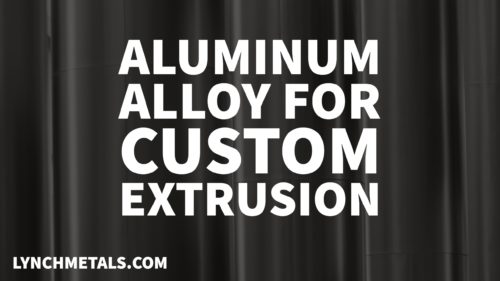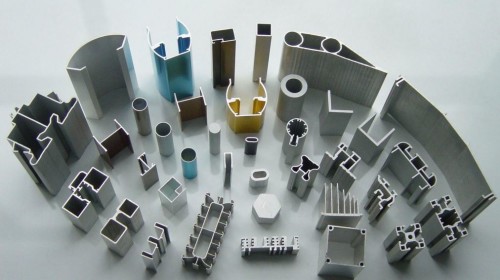***SUBJECT TO AVAILABILITY***
At Lynch Metals, we specialize in working with our customers in developing cost effective engineered material solutions. Our ability to supply a broad range of custom aluminum extrusions means that you have a virtual one stop source, including fabricated, painted and anodized products.
Our experienced team of extrusion specialists who will work with you in designing the optimal engineered solution for applications in markets such as architectural, building and construction, energy, electrical industrial equipment, lighting, and various consumer durable markets.
We are ISO 9001:2008 and AS9100:2009 certified, and ensure that every step of the shape development and manufacturing process meets the highest quality standards in the industry.
From under 1 inch to over 25 inch circle size, in alloys including 1xxx, 2xxx, 3xxx, 5xxx 6xxx and 7xxx series, we can provide you with the right product for your application. If you require that difficult to find special product, temper, alloy, finish, or fabricated component, Lynch Metals is your reliable, convenient source for all of your custom extruded aluminum requirements.
How it Works: The Aluminum Extrusion Process
Aluminum extrusion is a versatile, heat-dependent process used to shape aluminum alloys into unique cross-sectional profiles. T-slot aluminum and aluminum angles are two of the most common aluminum profiles produced, but custom dies can be created for unique applications.
Selecting the Right Aluminum Alloy for Extrusion
Formability and workability, weldability, machining capabilities, corrosion resistance, heat treatability, material strength, and end-use applications must all be taken into account when choosing which type of aluminum alloy to use for extrusion.
Alloy 1000 Series
This series is an excellent choice for applications requiring high formability, weldability, and corrosion resistance. However, the 1000 series does not respond well to heat treatment and has low strength. Typical uses include metal spinning and general fabrication.
Alloy 2000 Series
The 2000 series, on the other hand, offers high strength. The grades within this series are often used in the production of complex parts, since the 2000 series offers a high degree of machinability. Also, its strength-to-weight ratio makes it ideal for aerospace applications. However, these aluminum alloys provide low weldability and corrosion resistance.
Alloy 3000 Series
The 3000 series is the most popular. These alloys include manganese, allowing for a 20% stronger aluminum than the 1000 series while still remaining commercially pure. The 3000 series is commonly used in equipment found in food and chemical industries, as well as general fabrication.
Alloy 5000 Series
The 5000 series is most often used in marine environments due to its extremely high corrosion resistance. These alloys do not respond to heat treatment, but have a fair degree of weldability, formability, and strength.
Alloy 6000 Series
The 6000 series is most commonly found in structural and architectural settings because it is easily welded. It can also be anodized, allowing for alternate finishes. This series is typically used for hardware and coupling applications.
How to Extrude Aluminum
Some of the basic steps in the aluminum extrusion process are outlined below:
Extrusion log
The extrusion log is an alloy cylinder up to 72 inches long, which serves as the raw material for extrusion.
Preheating
The logs are loaded into a furnace and heated to 900 °F. This is hot enough to soften the aluminum alloy but not cause it to lose its cylindrical shape.
Extrusion process
The extrusion log is then loaded into the extruder machine, where a hydraulic ram forces the log through a shaped opening in a die.
Quenching
The log is immediately cooled using water, allowing the operators to precisely control the rate of cooling.
Stretching, Cutting, and Aging
The extrusions are then stretched to correct any shape deformities. The extrusions are then cut to a determined length and aged in an oven to reach the desired hardness.
Aluminum Surface Finishing
The pieces can then be run through a finishing machine to debur the extrusions, soften any sharp edges, and provide a surface ready for coating.
Learn More
Extruded aluminum can be found in many different products, including fasteners and connectors used in transportation applications, packaging materials, electrical products, and sporting goods. At Lynch Metals, we offer our customers JIT supply programs from our strategically located distribution centers. We are experts at helping you manage your inventory, to improve throughput, lower your material costs, and have those critical products available when you need them.
For additional information about our custom aluminum extrusion sourcing and distribution capabilities contact us at Lynch Metals and see how experience can mean the difference to your bottom line.


